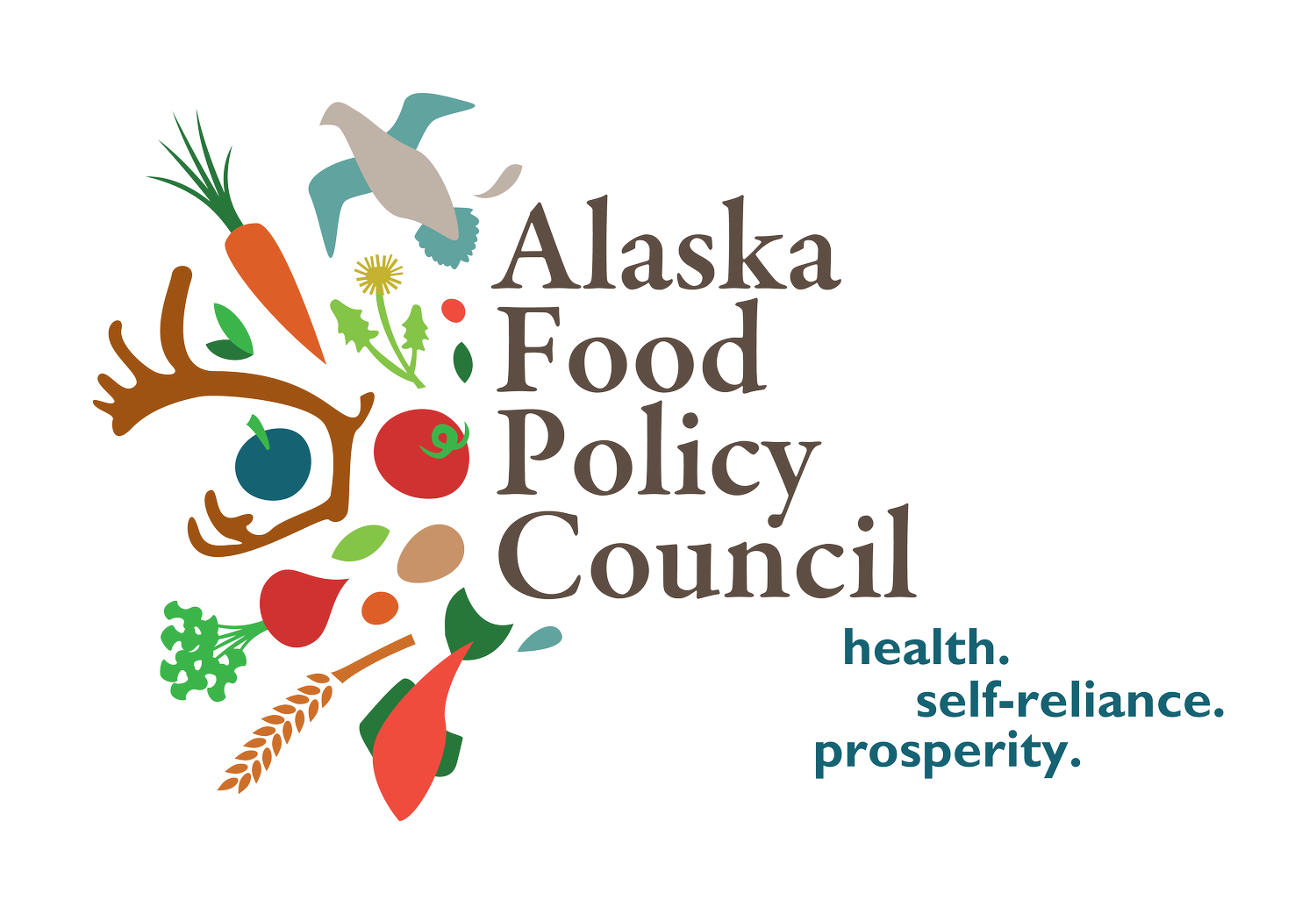WE’VE PUBLISHED OUR 2021 ALASKA FOOD POLICY COUNCIL ANNUAL REPORT, TELLING STORIES AND EXEMPLIFYING IMPACTS FROM AROUND ALASKA’S FOOD SYSTEM, HIGHLIGHTING PARTNERSHIPS, INITIATIVES, AND WAYS FOR YOU TO GET INVOLVED. TAKE A LOOK AT THE REPORT BELOW.
AFPC ANNUAL REPORTS
EXCERPT: A MESSAGE FROM OUR EXECUTIVE DIRECTOR
I want to write to you about what gives me hope.
I look around at the connections my local community is weaving to support each other, and I see a vision for the future that centers the principle of nurturing healthy relationships, through kindness and connection. We are working to honor equity and acknowledge our dependence upon such riches as soil, ocean, and a diversity of life.
This is what gives me hope amidst it all. Let’s acknowledge what weighs on us collectively: a global pandemic, climate change, and social tension. Our globalized food system continues to crack with the fragility of its scale. Food workers are demanding fair wages, hazard mitigation and immigration reform. Severely delayed global supply chains have led to massive food waste and higher food costs. We collectively crave respite and rest, liberation and renewal.
Luckily, people everywhere are accessing their own power to decentralize and stabilize their local food systems, and the same goes for Alaskans. Food hubs and farmers’ markets are growing statewide. Cooperation between local producers and processors is driving more than resilient and diverse economies by directly connecting supply and demand; localized systems thrive through accountability and collaboration. Community-based farmers and fishermen collectively develop shared knowledge systems that nourish much more than food production alone. Even global food companies are looking for ways to be more sustainable and find partnerships with local producers.
The space between this vision and where I find myself now looks a lot like policy reform, but the concepts are not new. Indigenous stewards have honored and protected biodiversity since time immemorial, and the federal government is taking steps to catch up. Increasingly, decision-makers are working toward reducing social and environmental costs along the food chain, while thinking creatively on how to build a better Alaska food system.
In Alaska’s future, I see that our food system will embody values of equity, access and renewable energy; that it will be planned and operated by place-based local leadership and by the hard-working farmers, fishers, and processors that keep the world fed. Our food system of the future is localized and regenerative. We have great challenges ahead of us, but I am glad that you, too, hear the call to transform our food system into a more inclusive, equitable, and sustainable one.
Thank you for joining the journey of strengthening Alaska’s food system. Each of you gives me hope.
Robbi Mixon, Executive Director
Alaska Food Policy Council





